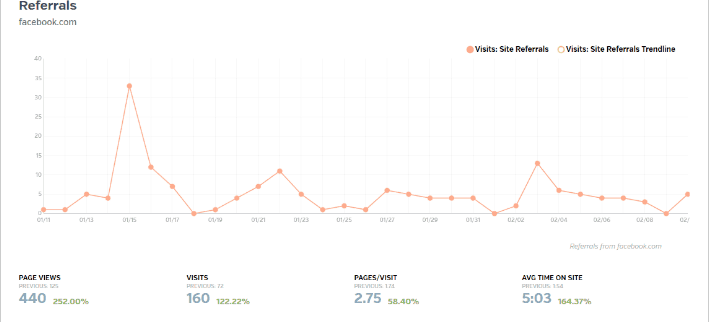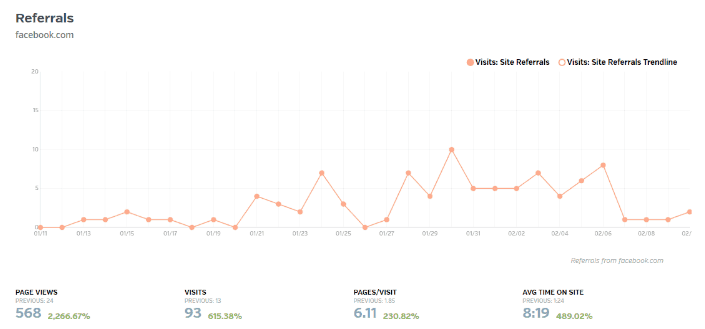The Facebook Fraud video has gone viral. If you haven’t had the chance to see it for yourself, be sure to check it out:
I have been asked my opinion on the topic and thought it would be best to share my opinions on the Facebook Fraud video through a blog post. As a person who supports Facebook Advertising and what it can accomplish for Facebook Pages, its issues do need to be properly addressed; however, this video does not do that.
I’m not stating that the results that Veritasium have calculated are false, but the results may have been skewed, as the video doesn’t fully explain the targeting process.
You Must Target Your Audience Manually
Facebook Ads are not easy, and they are not meant to be. They have also changed quite drastically since 2012, when the experiments in video were originally documented.
Firstly, one should never “set and forget” anything on Facebook, nor should you just pick random locations and hope that quality people like and engage on your page. Click Farms are the illegitimate way to buy Facebook “likes,” however, Veritasium is incorrect to call Facebook Ads “a legitimate way of buying likes.”
Let’s make it clear: You are not buying “likes” when you buy a Facebook Ad, you are buying exposure.
Secondly, the two example pages used in the video have no true quality or value, so how did they expect to receive a quality audience?
Targeting an audience cannot be simply left up to Facebook Ads. Yes they do help, but they are only a part of an entire strategy that needs to be implemented first. One of the questions that needs answering is, “Who are you trying to target?” This is important to ask as it will be able to assist in what you post to the page.
Facebook Pages Need to Be Built with Care
Veritasium focused in on the “About” section of the two example pages, and although that section is important, did either one truly show value? No.
If you take a peek at Virtual Bagel’s Facebook Page, you will see that they did not take much pride in actually building the page. Any Internet Marketer will look at this page and most likely cringe. A business or any page owner needs to respect that Facebook works off of an algorithm, one that provides back what you put into it.
You must first build a page, and depending on the topic at hand, each page will differ from the next. You certainly should never create a page and promote it using Facebook Ads without first posting content — like the example with Virtual Cat. Not to mention that both are not businesses, they don’t serve a purpose, and they do not actually sell anything.
Facebook Ads are intended to boost your exposure, and your page will definitely see more likes. People will like almost anything to do with food or cats, after all. The point, however, is that you need to apply more than just Ads if you’re looking to gain a relevant following. You won’t if you don’t.
So Facebook’s ad system is flawed, right? Yes, but this just means you need to remain vigilant about the changes and introduce other aspects of Facebook Ads as a part of your overall ad budget. And no, this does not mean you need to pay more.
Targeting is what you need to do to produce better results for your Facebook page. This is also the case when it comes to what content you post on your page and to when to promote them using Facebook Ads. It is all about timing and quality.
Your Facebook Content Needs to Be Relevant
Regarding the last post Veritasium made on their Facebook page: If you actually saw the post (in the video), you can see that it had no relation to what the page was actually about, and therefore should have low engagement anyway.
Facebook Ads should always be tested prior to putting a ton of money down, and they should be tweaked upon results. This is just one of the reasons many choose to enlist a Facebook marketing company to handle Facebook Ads, but you should do your research.
On every other ad platform — from radio, television, to other internet ads — one does their market research and never flies blindly. Facebook and other social networks are no different. What you need to do is review your analytics, besides just your Facebook insights.
As you can see, this graph below was pulled from Google Analytics and displays a one month time frame. Keep in mind that this calculates Facebook Ads, Facebook Promoted Posts, and the organic Facebook referrals — not just traffic from a particular page:
The results indicate that Facebook is the third largest source of traffic to this website.
It also shows that Facebook is converting into web traffic. As you can see, 160 people visited the site, averaging two pages per visit. The value is in the “average time on site,” as it shows that each person spent a little over two minutes per page.
Another example — from a different web address — shows that when Facebook Ads and Promoted Posts were added, web traffic from Facebook increased overall. This graph identifies that Facebook Advertising played a significant role in this site’s growth.
The stats show that 93 people visited the website from Facebook, averaging 6 pages per visit, and spending just a little over a minute on each page.
The reasoning for these examples is to show that if Facebook Ads were similar to “click farms,” there would be no conversion, no social signals, and the average time on site would be drastically less.
Facebook Requires Strategy
Although the video is compelling, well done, and makes some great points, there are some examples to dispute.
If you are going to use Facebook Ads, you need to do your research, you need to have a strategy, and most certainly you need to stop relying on Facebook Ads as an audience builder.
Veritasium has definitely brought up a great subject matter for all Internet Marketers to discuss, while also bringing awareness to improper ad implementation. Facebook certainly needs to plug a few holes, but this issue is not subject to Facebook alone. Social Advertising is still fairly new, so this is something we’ll hear about more and more as the industry grows.
***



1 Comment
Comments are closed.